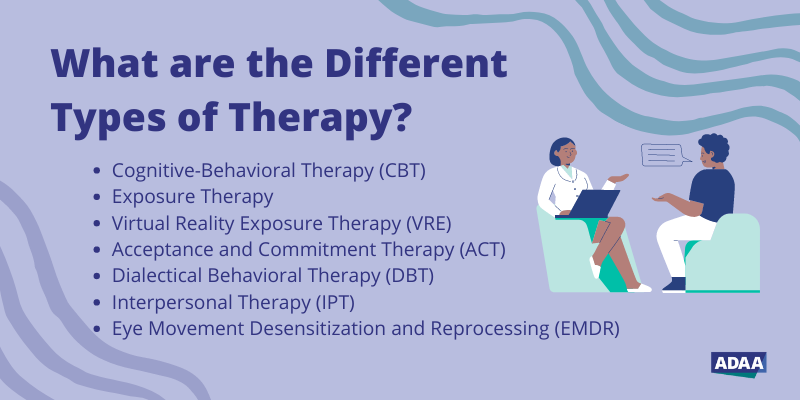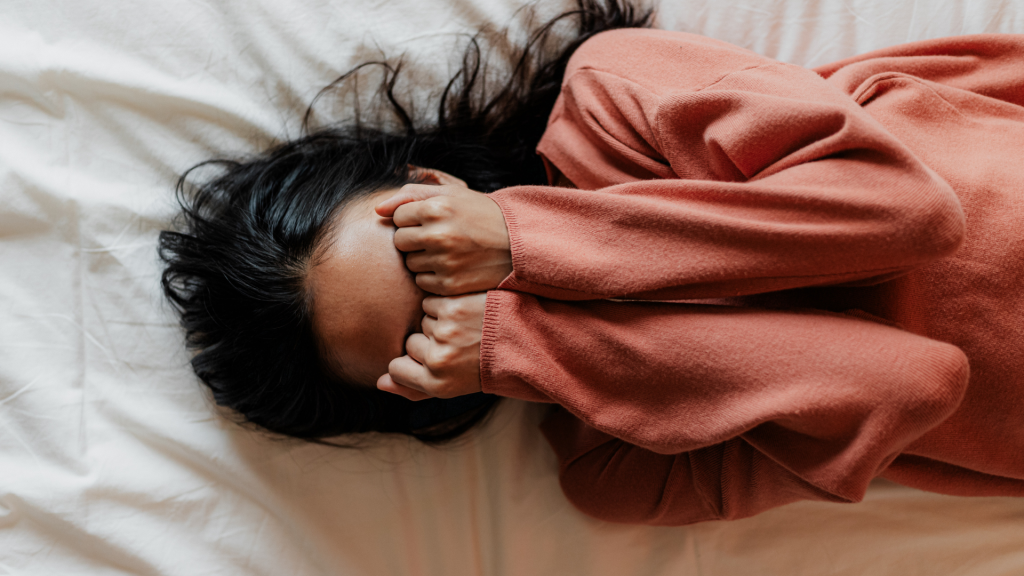Find balance and understanding with trusted counseling services for anxiety
Find balance and understanding with trusted counseling services for anxiety
Blog Article
Exploring Different Approaches in Therapy for Anxiety Condition for Long-term Change
When tackling anxiousness disorders, it's vital to explore a selection of counseling strategies. Each technique uses unique understandings and tools to assist you manage your symptoms effectively. You may discover that incorporating techniques can generate the best outcomes. However, recognizing the subtleties of these approaches is key to fostering lasting modification. What happens if the ideal mix could release a new degree of psychological wellness for you?
Comprehending Anxiousness Disorders: A Brief Overview
Anxiety problems, which impact numerous individuals worldwide, can greatly influence life. You may experience overwhelming feelings of worry or stress that appear unmanageable. These sensations can bring about physical signs like an auto racing heart, sweating, or also lightheadedness. Usual sorts of stress and anxiety conditions include generalized anxiousness condition, panic attack, and social stress and anxiety problem. Each has unique indicators, but they all share a propensity to disrupt your regular and relationships.Understanding the origin of your stress and anxiety is vital. It may originate from genetics, mind chemistry, or life experiences. Recognizing your triggers can assist you handle your reactions better. It's crucial to remember that you're not alone in this struggle. Many individuals deal with similar obstacles, and seeking help is a strong action towards feeling much better. By learning about anxiety problems, you're already on the course to understanding and handling your problem better.
Cognitive-Behavioral Therapy: Challenging Unfavorable Idea Patterns

Recognizing Negative Thought Triggers
When you encounter moments of distress, identifying the specific triggers behind your adverse thoughts can be vital in managing anxiousness. Beginning by taking note of situations that provoke sensations of worry or anxiety. Is it a jampacked space, an upcoming due date, or a conversation with specific individuals? Jot down these circumstances in a journal. This will assist you recognize patterns in your reasoning. Additionally, notice physical feelings that accompany your adverse ideas, like a racing heart or tightness in your chest. By determining these triggers, you gain understanding into what's fueling your anxiety. Recognizing these links is the initial step in challenging those thoughts and eventually reclaiming control over your emotional responses.

Replacing Ideas With Positives
Challenging negative thought patterns is an essential step in transforming your state of mind and decreasing stress and anxiety. You may frequently find yourself caught in cycles of self-doubt or catastrophic thinking. Rather than letting these ideas determine your sensations, practice changing them with favorable affirmations or reasonable alternatives. As an example, when you assume, "I can not handle this," move it to, "I can take care of challenges one step each time (Counseling services for anxiety)." This basic change can considerably affect your emotional state. Frequently recognizing and responding to these unfavorable ideas aids develop a much healthier interior dialogue. Remember, it requires time and initiative, but consistently practicing this strategy can cause enduring change, equipping you to deal with stress and anxiety with renewed self-confidence and durability
Building Coping Methods With Each Other
Replacing adverse thoughts is just the start of managing stress and anxiety successfully. To produce long lasting adjustment, you need to build coping strategies that equip you. Cognitive-Behavioral Therapy (CBT) helps you determine and challenge those unhelpful thought patterns. Together, you and your counselor can check out just how these ideas impact your sensations and behaviors.Start by developing functional methods, like journaling or mindfulness exercises, that allow you to confront anxiety head-on. When you encounter your fears slowly, you'll learn to respond in a different way.

Mindfulness and Acceptance-Based Approaches: Cultivating Present-Moment Recognition
As you browse the complexities of anxiety, including mindfulness and acceptance-based strategies can significantly enhance your capability to grow present-moment recognition. By concentrating on the here and now, you'll locate that you can observe your thoughts and sensations without judgment. This method helps you acknowledge your anxiety without feeling bewildered by it.Engaging in mindfulness exercises, such as deep breathing, body scans, or directed meditations, allows you to ground on your own in your present experience. Acceptance-based methods urge you to welcome your feelings as opposed to battle against them. When you approve your sensations, they shed their power over you.Incorporating these methods into your everyday routine can change just how you reply to stress and anxiety. You'll establish resilience and find out to navigate stressful scenarios with better convenience. Eventually, growing present-moment understanding lays the foundation for long-term adjustment, equipping you to lead an extra satisfying life.
Exposure Treatment: Challenging Anxieties Gradually
Direct exposure therapy aids you face your fears in a progressive means, making it much less overwhelming. You'll learn strategies to encounter anxiety-provoking situations step by action, while likewise developing coping approaches to handle your reactions. This approach empowers you to take control and decrease anxiety with time.
Progressive Exposure Methods
When facing anxiousness, slowly challenging your anxieties can be a powerful means to restore control. This technique, called steady direct exposure, involves slowly revealing on your own to the scenarios or items that activate your stress and anxiety. Begin with less intimidating scenarios and slowly work your means approximately more challenging ones. For example, if you hesitate of public talking, you might start by talking in front of a mirror, after that proceed to sharing ideas with a good friend, and eventually resolve a small group. Each step aids desensitize you to the worry, constructing your self-confidence in time. Keep in mind, it's necessary to rate on your own and celebrate tiny victories as you relocate through this process, strengthening your capacity to handle stress and anxiety effectively.
Building Coping Approaches
Building effective coping methods is vital for taking care of stress and anxiety, especially as you confront your concerns gradually. One powerful approach is direct exposure therapy, where you begin by encountering your worries in a regulated manner. Begin with much less daunting circumstances and gradually work your means up to more difficult circumstances. This steady exposure helps desensitize you to anxiety causes, making them less overwhelming.Incorporate leisure methods, such as deep breathing or mindfulness, to relax your mind throughout direct exposure. Track your progression, commemorating small victories along the means to improve your self-confidence. Bear in mind, it's alright to take your time; the objective isn't perfection yet consistent renovation. By developing these methods, you'll empower on your own to navigate anxiousness and embrace life a lot more totally.
Psychodynamic Therapy: Discovering Root Reasons of Anxiousness
Psychodynamic therapy checks out the subconscious mind, exposing the root triggers of your anxiety - Counseling services for anxiety. By analyzing your thoughts, feelings, and previous experiences, this approach helps you reveal underlying disputes and unsolved concerns that might add to your current anxiety. You'll deal with a specialist to explore childhood years experiences, connections, and emotional patterns that form your feedbacks today.As you gain understanding right into these deeper layers of your mind, you'll start to identify just how past occasions influence your existing actions. This understanding can bring about catharsis, allowing you to process feelings you could have suppressed.Through the restorative partnership, you can likewise determine defense reaction that might have established over time, using a more clear course to alter. Ultimately, psychodynamic therapy outfits you with the tools to address your anxiousness at its core, advertising lasting improvement in your emotional wellness
Alternative and integrative Methods: Incorporating Strategies for Greater Effectiveness
Integrating various restorative techniques can improve your journey toward handling anxiousness better. By combining elements from cognitive-behavioral treatment, mindfulness methods, and all natural strategies, you can develop a personalized method that resolves your one-of-a-kind requirements. For example, you might utilize cognitive-behavioral techniques to challenge unfavorable thought patterns while integrating mindfulness workouts to ground yourself in the here and now moment.Additionally, discovering all natural methods such as yoga exercise or meditation can promote leisure and reduce stress and anxiety signs and symptoms. This mix allows you to establish greater self-awareness and resilience.Experimenting with these varied techniques can help you uncover what reverberates most with you. Bear in mind, it has to do with discovering a synergy that functions, as opposed to staying with a solitary technique. This integrative strategy not just uses instant relief however also cultivates long-lasting skills for handling anxiety, encouraging you to reclaim control over your life.
The Duty of Support Systems: Building Strength Through Link
While it might seem that managing stress and anxiety is a singular journey, having a solid support group can play an essential function in your resilience. Surrounding on your own with empathetic close friends, family members, or support groups develops a safe room where you can openly share your experiences and feelings. When you get in touch click here with others, you advise yourself that you're not alone in this struggle.These connections supply support and can give useful coping methods that have actually worked for others. It's likewise a possibility to get perspective; buddies can help you see scenarios differently, decreasing sensations of isolation.Moreover, psychological assistance cultivates a sense of belonging, which can significantly reduce stress and anxiety signs. By leaning on your support group, you can develop durability and deal with difficulties a lot more successfully. Keep in mind, connecting for assistance signifies strength, and it can make all the difference in your journey toward managing anxiety.
Often Asked Concerns
What Are the Typical Signs of Anxiety Disorders?
You could experience uneasyness, exhaustion, problem concentrating, irritation, muscle stress, and rest disruptions. Physical symptoms can consist of fast heartbeat, sweating, and shivering. Identifying these indications early can help you look for proper support and therapy.

For How Long Does Therapy Usually Last for Anxiety Problems?
Treatment for stress and anxiety problems normally lasts anywhere from a few weeks to numerous months. It actually relies on your private demands, development, and the strategies your therapist makes use of to help you handle your anxiety properly.
Can Medication Be Utilized Alongside Treatment for Stress and anxiety?
Yes, medicine can most definitely be used along with therapy for stress and anxiety. Incorporating both techniques frequently boosts therapy effectiveness, assisting you take care of symptoms while discovering underlying issues with therapy. Constantly consult your doctor for customized suggestions.
Exist Self-Help Techniques for Handling Anxiousness?
Yes, there are numerous self-help strategies for managing stress and anxiety. You can exercise mindfulness, participate in regular exercise, maintain a balanced diet plan, develop a regular, and make use of deep breathing techniques to help in reducing stress and anxiety signs properly.
Just how Do I Know if I Required Specialist Aid for Anxiousness?
You need to think about seeking expert help for stress and anxiety if it interferes with life, creates substantial distress, or if self-help approaches aren't functioning. Trust fund your impulses; connecting can cause much better coping skills and support. Usual kinds of anxiousness problems consist of generalised anxiousness problem, panic disorder, and social anxiousness problem. When you run into minutes of distress, recognizing the specific triggers behind your negative thoughts can be vital in handling stress and anxiety. Changing unfavorable thoughts is just the beginning of taking care of anxiousness efficiently. By examining your ideas, feelings, and previous experiences, this strategy aids you discover underlying problems and unsettled issues that might add to your current anxiousness. It's likewise a chance to get perspective; good friends can aid you see situations in different ways, minimizing sensations of isolation (Counseling services for anxiety).Moreover, emotional assistance promotes a sense of belonging, which can considerably reduce anxiousness signs
Report this page